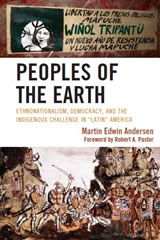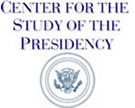For sure, the original four have made huge advances in the past 20 years. But it is worth remembering that the concept was not invented by Goldman Sachs but by President Sukarno of Indonesia a half century earlier when he coined the term the “New Emerging Forces.”
Indeed, in 1963 Indonesia organized a sports tournament it called the Games of the New Emerging Forces in Jakarta, largely paid for by China. Significantly, Indonesia was not even present in Hainan, despite its progress since 1963.
So are these current “emerging nations” a real gang of five, or just a list of nations with no common agenda other than a shared resentment of the United States — albeit for sometimes contradictory reasons — that want to devise an antidote to Western power? Does this group have any credibility other than as a source of rhetoric and photo opportunities?
The most obvious common denominator of four of the member countries is that they are major suppliers of commodities to the fifth — China.
All now see China as a huge and rapidly growing market for their coal, iron ore, gas, soybeans, etc. All recognize that Chinese demand has been the main driver of the commodity boom of the past seven years, from which they have all benefited enormously.
Being part of the group makes good business sense — it’s a handy forum for pleading for more investment from Beijing and more exports to China, and provides opportunities for Brazil and South Africa in particular to raise their international profiles.
China’s role establishes it as undisputed leader of these “emerging forces.” However, the other members might do well to pause to consider the nature of their relationship with China.
For Russia, there is the poignant realization that a former superpower now plays second fiddle to China in an “emerging” group. For all four nations, it’s a reminder that they mainly sell raw commodities to China while China sells them manufactured goods.
Despite the boom in commodity prices, China enjoys trade surpluses with all of them except Brazil. India in particular is embarrassed that it mainly sells iron ore to China while seeing Chinese goods make huge inroads into India’s markets. India’s trade deficit with China is running at $25 billion annually.
The five BRICS make common cause complaining about the volatility of commodity and currency markets and the perils of too-open capital markets. That seems fair enough, until one notes that Brazil, India and South Africa have all suffered from undervaluation of the Chinese currency, the renminbi, while their own currencies have been appreciating.
The political goal of appearing united prevents these countries from being as outspoken as they need to be on currency issues. A proposal to settle bilateral trade in their own currencies rather than in U.S. dollars is mostly illusory. Likewise, the complaints about speculative activity in commodity markets are at odds with the fact that China has some of the world’s most active and volatile commodity markets.
Inclusion of South Africa in the group is unlikely to add to its influence. This addition has been seen as a diplomatic coup for China, which wanted an African member — just as Sukarno wanted Egypt in his Asia-Africa-Latin America grouping. But South Africa has a fraction of the economic weight of the other members, and its presence in this select company has been duly noted by excluded countries like Indonesia, Turkey, South Korea or Mexico.
The truth is that the interests of “emerging forces” are far more comprehensively represented by their members in the Group of 20 than by the BRICS. This was a summit meeting the emerging world does not need.






